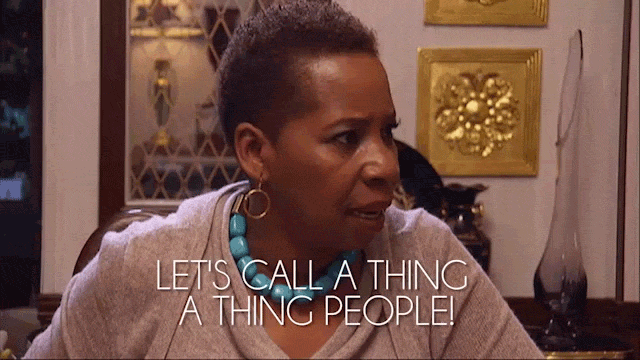
3 Tips for Dealing with a Narcissist in Your Life
If you frequent the mental health side of apps like TikTok, Instagram, and YouTube, you may have come across a post or two from people who have encountered a narcissist in their lives. This is a very common occurrence as anyone around you could be a narcissist. It could be a parent, sibling, child, lover, friend, another family member, colleague, boss—basically anyone.
For proper clarification, a narcissist is a person with an extremely self-centered personality with little to zero empathy for others. They often take advantage of people who are more vulnerable than them. While there is a legitimate mental health condition for narcissism (narcissistic personality disorder), many people do exhibit narcissistic traits without having NPD.
Narcissism might be a common phenomenon globally, but it’s been statistically proven that narcissism is more than twice as common in the Black community. In some cases, the actions of the narcissist in your life may not have much of a direct effect on you—for instance, if the narcissist is a distant relative that you don’t see often. But in other cases, and oftentimes too, the narcissist in your life is a parent, a lover, a coworker, a bosom friend, or someone who you interact with daily. And because you have to deal with this person round the clock, the actions of this narcissist in your life can easily slip into narcissistic abuse.
This is where it gets really serious.
The trope “strong Black women” may exist, but the truth is that we are also incredibly vulnerable. This is a trait that narcissists love to prey on over and over again. As a result, so many Black women have experienced or are experiencing narcissist abuse today. And healing or moving away from this narcissist abuse are processes that not many Black women feel they have the strength to push through.
Nevertheless, if you are dealing with a narcissist in your life, there are two things I want you to be certain of today:
- You are not alone in your struggles.
- Toleration isn’t the answer.
The longer you tolerate the behavior of a narcissist, the worse the effects of their actions on your mental and physical health will become. You will begin to experience intense feelings of shame or guilt. You will find that you’re slowly losing your self-esteem and sense of self. You will begin to feel isolated (you aren’t!) and your other relationships will begin to suffer. You may begin to indulge in different escape behaviors such as overeating, substance use, and alcoholism just to feel a few moments of freedom from the narcissist.
Thus, to effectively deal with a narcissist and avoid or curb the effects of their actions and behavior in your life, you cannot be tolerant or forbearing. You need to get proactive and take actions to protect yourself, and if necessary, to heal too.

3 Tips for Black Women to Effectively Deal with Narcissism
Most times, the narcissist in your life is someone you love and deeply care for. But you also need to put yourself and your wellbeing first. Thus, here are 3 tips to effectively deal with a narcissist and recover from narcissistic abuse.
1. Recognize the Narcissist.
First, you must identify the narcissist in your life. The person will oftentimes be a sweet talker with a ton of charm. You will catch them very often in lies, manipulation, or blatantly disrespecting others.
Once you recognize the narcissist, you must then realize what effect(s) they’ve had in your life. Were you subject to humiliation, controlling behavior, intense blaming, or any other kind of abuse from them? Did any of their actions make you feel like you’re worth less than you actually are? Did you find yourself in situations where they would take advantage of your love or the relationship between you two?
Always remember that the actions and behavior of the narcissist are not and will never be your fault.
2. Counteract the Narcissus in them.
Fun fact: The term, “narcissism”, is named after the mythological figure, Narcissus, who fell in love with his own reflection.
One thing about narcissists—they do not handle criticism well. So the last thing you want to do is get antagonistic or try to retaliate against their actions. Hence, here are some actions that you should take.
Define your boundaries and enforce them. A narcissist will always be highly self-absorbed, and so they tend to cross boundaries a lot. Therefore, be very clear to them that your boundaries are important to you. Then lay down the consequences of crossing your boundaries and let your word be your bond.
Take back control of your own life. Set your own schedule, organize your spaces and possessions in the ways that suit you, and set apart ample time for self-care. Overall, do all the things that will make you feel like you’ve taken your reins back into your own hands.
If the abuse of a narcissist gets too much to handle, then it might be best to end the relationship. Trust me, walking away completely is the best way to find yourself again. You may need some support when leaving the relationship (see tip 3), but never ever let anything they say or do fool you into coming back.
3. Seek support.
Finally, you’re going to need people who will validate, comfort, and help you. This could be trusted friends or family, a professional counselor, or a dedicated support group.
Don’t be scared to open up about your emotions. Whether it’s fear of loneliness, anxiety from finally taking action, or grief from the lost relationship, you’ll find that letting it all out will aid you through your healing process faster.
We’re here for you at Urban Playology!
To effectively recover from a relationship or experience with a narcissist, you need to see them for who they really are, take the right actions, and find the right support. Remember that it’s never too late to seek support, regardless of how long ago your experience was.
At Urban Playology, we provide transformative psychotherapy, counseling, and creative arts therapy for the healing of Black women, families, and LGBTQ+ folks. Reach out to us today and we will provide you with support and assistance that is the perfect fit for you.
Check out this video on black independence and self-validation.
Check out this podcast on letting go:
Learn More